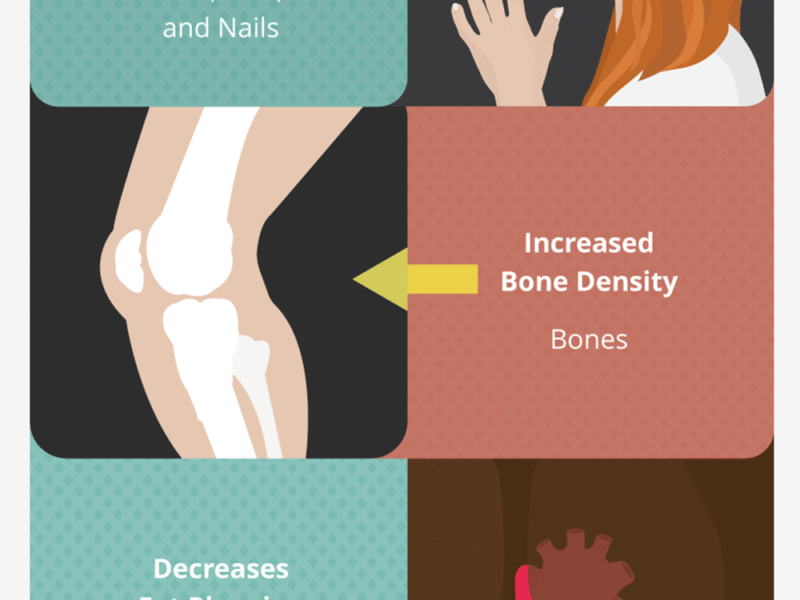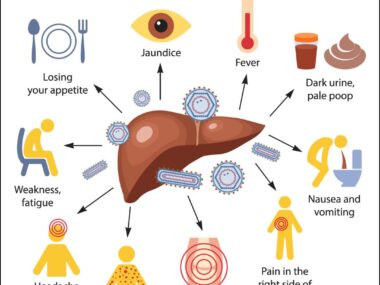What is Collagen and Why is it Important for the Body?
Collagen is a vital protein that plays a crucial role in maintaining the health and vitality of our bodies. It is the most abundant protein in our bodies, accounting for about one-third of our total protein composition. Collagen is often referred to as the building block of our skin, bones, muscles, tendons, and ligaments.

Collagen provides structure and support to various tissues, promoting their strength and elasticity. It is primarily found in the extracellular matrix, a network of proteins and fibers that surround our cells. This protein is responsible for maintaining the integrity and firmness of our skin, giving it a youthful appearance.
As we age, our body’s collagen production naturally declines. This decline starts as early as our mid-20s and accelerates in our 30s and 40s. The decrease in collagen levels leads to visible signs of aging, such as wrinkles, fine lines, and sagging skin. Additionally, reduced collagen production can result in joint stiffness, weakened bones, and brittle nails.
Supplementing collagen can help combat these age-related changes and support overall health. By replenishing the body’s collagen levels, we can promote skin elasticity, joint flexibility, and connective tissue strength.
Benefits of Collagen for Skin Health
Collagen plays a crucial role in maintaining skin health and appearance. Its benefits for the skin are numerous and can have a transformative effect on our overall complexion.
One of the primary benefits of collagen for the skin is improved hydration. Collagen helps retain moisture in the skin, keeping it plump and hydrated. This hydration can reduce the appearance of fine lines and wrinkles, giving the skin a smoother and more youthful look.
Collagen also promotes skin elasticity, which is essential for maintaining a firm and toned complexion. As we age, our skin loses its elasticity, leading to sagging and drooping. By incorporating collagen into our skincare routine, we can help restore and maintain the skin’s elasticity, resulting in a more lifted and youthful appearance.
Another benefit of collagen for the skin is its ability to support wound healing. Collagen is involved in the formation of new skin cells and helps repair damaged tissue. It can speed up the healing process of cuts, burns, and other skin injuries, minimizing scarring and promoting healthy skin regeneration.
Benefits of Collagen for Joint Health
Collagen is not only beneficial for our skin but also plays a crucial role in maintaining healthy joints. As we age, the cartilage in our joints starts to deteriorate, leading to joint stiffness, discomfort, and reduced mobility. Collagen supplementation can help alleviate these symptoms and support joint health.
One of the primary benefits of collagen for joint health is its ability to reduce joint pain and inflammation. Collagen helps maintain the integrity of the cartilage in our joints, reducing friction and cushioning the impact on our bones. This can result in less pain and increased mobility, allowing individuals to engage in physical activities with ease.
Collagen also supports the production of synovial fluid, which acts as a lubricant for our joints. This fluid helps reduce friction and allows smooth movement of the joints. By promoting synovial fluid production, collagen can enhance joint flexibility and reduce stiffness.
Additionally, collagen supplementation has shown promising results in the treatment of conditions such as osteoarthritis and rheumatoid arthritis. These conditions involve the breakdown of cartilage and chronic inflammation in the joints. Collagen can help slow down the progression of these conditions and alleviate symptoms, improving the quality of life for individuals suffering from joint disorders.
Other Health Benefits of Collagen
In addition to its benefits for skin and joint health, collagen offers a range of other health benefits that contribute to our overall well-being.
Collagen has been shown to support bone health and density. It is an essential component of our bones, providing them with strength and structure. By incorporating collagen into our diet or supplementation routine, we can help maintain healthy bones and reduce the risk of conditions such as osteoporosis.
Furthermore, collagen can aid in weight management and muscle development. It is a rich source of protein, which is essential for muscle growth and repair. By increasing collagen intake, individuals can support muscle development, enhance athletic performance, and promote a healthy body composition.
Collagen has also been linked to improved gut health. It helps strengthen the lining of the digestive tract, preventing the leakage of toxins and undigested food particles into the bloodstream. This can reduce inflammation in the gut and promote better digestion and nutrient absorption.
Different Types of Collagen Supplements
Collagen supplements come in various forms, each offering its own unique benefits and properties. It is important to choose a collagen supplement that suits your specific needs and preferences.
The most common types of collagen supplements include:
- Collagen Peptides: These are hydrolyzed collagen molecules broken down into smaller peptides for easy absorption. Collagen peptides are versatile and can be easily incorporated into various drinks and recipes.
- Marine Collagen: Derived from fish and other marine sources, marine collagen is known for its high bioavailability. It is rich in Type I collagen, which is the most abundant type of collagen in our bodies.
- Bovine Collagen: Bovine collagen is sourced from cows, making it an excellent option for individuals following a non-vegetarian diet. It is typically rich in Type I and Type III collagen.
- Chicken Collagen: Chicken collagen is sourced from chicken bones and cartilage. It is often used in supplements targeting joint health, as it is rich in Type II collagen, which is specifically beneficial for cartilage support.
How to Incorporate Collagen into Your Diet
In addition to supplements, collagen can be incorporated into your diet through various collagen-rich foods. By including these foods in your meals, you can naturally boost your collagen intake and support your overall health.
Some collagen-rich foods to consider include:
- Bone Broth: Bone broth is made by simmering animal bones and connective tissue, extracting the collagen and other beneficial nutrients. It is a flavorful and nutritious way to incorporate collagen into your diet.
- Fish: Fish, particularly those with skin and bones, are rich in collagen. Salmon, mackerel, and sardines are excellent sources of collagen and omega-3 fatty acids, which further support skin and joint health.
- Egg Whites: Egg whites contain a significant amount of collagen, making them an easy and accessible way to increase your collagen intake. They can be incorporated into various recipes, such as omelets and protein pancakes.
- Citrus Fruits: Citrus fruits are rich in vitamin C, which plays a crucial role in collagen synthesis. Including fruits like oranges, lemons, and grapefruits in your diet can support collagen production and overall skin health.
- Leafy Greens: Leafy greens, such as spinach and kale, are packed with nutrients that support collagen production. They are rich in antioxidants, vitamins, and minerals that promote skin health and protect against collagen degradation.
Potential Side Effects and Precautions of Collagen Supplementation
While collagen supplementation is generally safe for most individuals, it is important to be aware of potential side effects and take necessary precautions.
Some individuals may experience digestive issues, such as bloating or diarrhea, when first starting collagen supplementation. These symptoms are usually temporary and subside as the body adjusts to the supplement. It is recommended to start with a low dosage and gradually increase as tolerated.

Individuals with allergies to specific collagen sources, such as fish or shellfish, should avoid collagen supplements derived from those sources. It is important to read product labels carefully and choose collagen supplements that align with your dietary restrictions and preferences.
If you have any underlying health conditions or are taking medications, it is advisable to consult with a healthcare professional before starting collagen supplementation. They can provide personalized guidance and ensure that collagen supplementation is safe for you.
Conclusion and Final Thoughts on the Benefits of Collagen
Collagen is a remarkable protein that offers numerous benefits for our skin, joints, and overall health. It is an essential component of our bodies, supporting the structure and function of various tissues.
Incorporating collagen into our diets or skincare routines can help replenish and support this vital protein, promoting skin hydration, elasticity, and joint mobility. Whether through supplements, topical creams, or collagen-rich foods, harnessing the power of collagen can unlock the secrets to looking and feeling your best.
Remember, the key to reaping the benefits of collagen lies in consistency. By making collagen supplementation or collagen-rich foods a part of your daily routine, you can nourish your body from within and enjoy the transformative effects of this remarkable protein. Start your collagen journey today and embrace the power of youth, vitality, and wellness.










